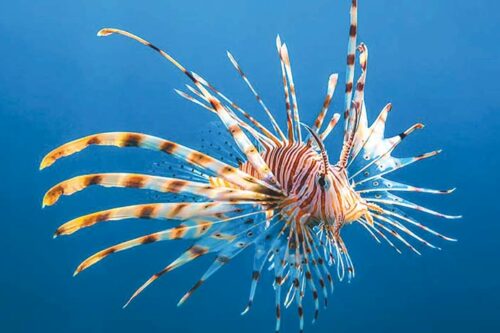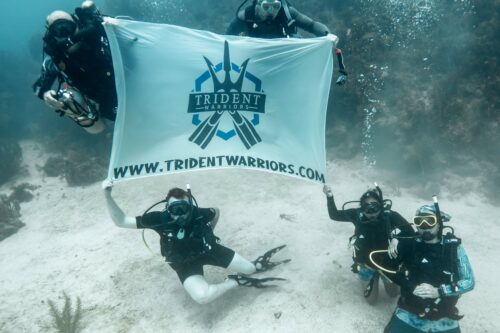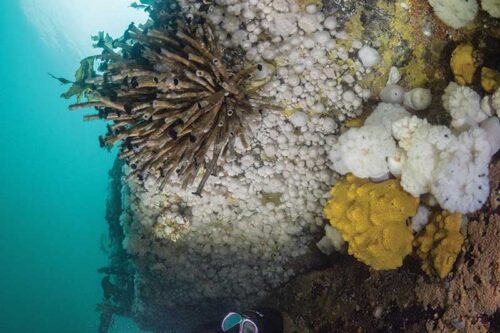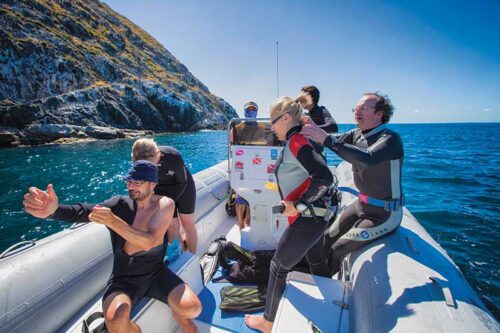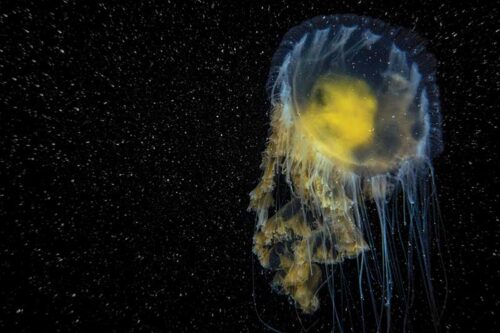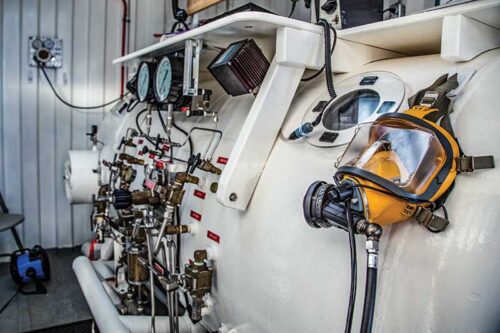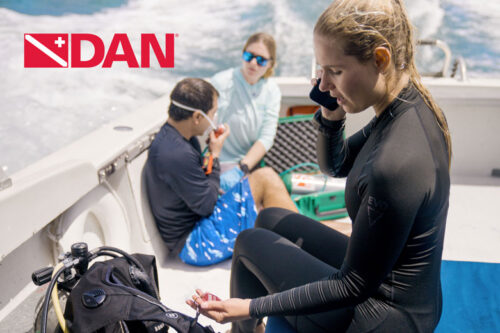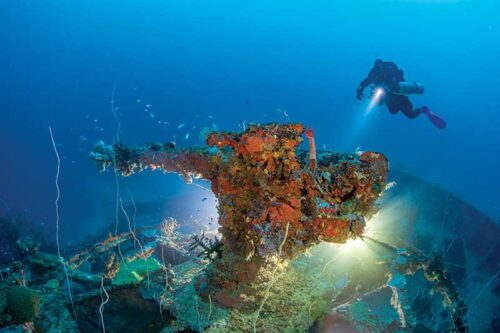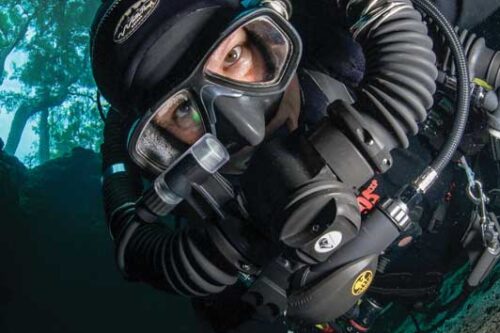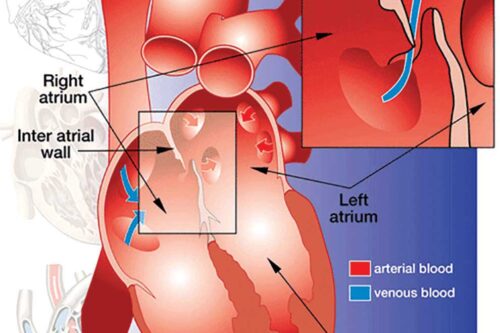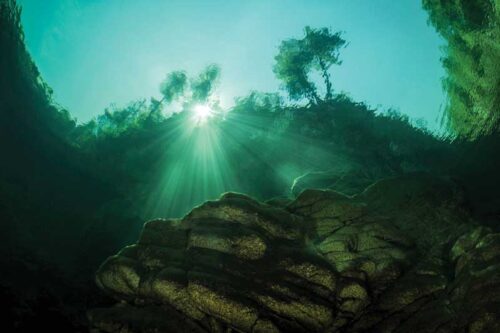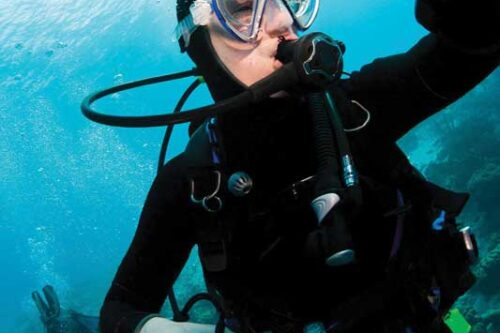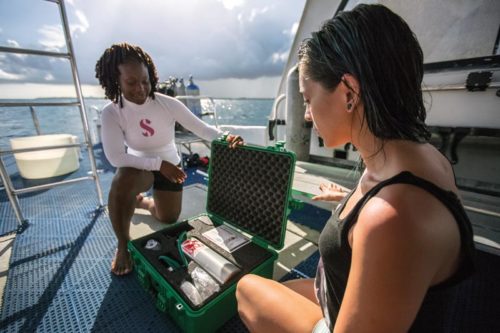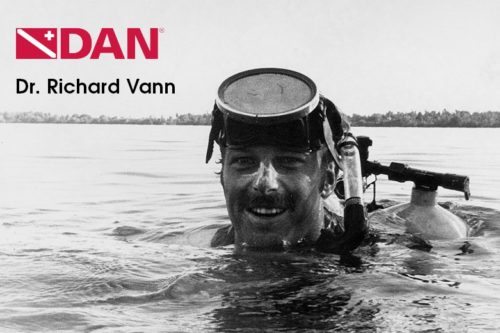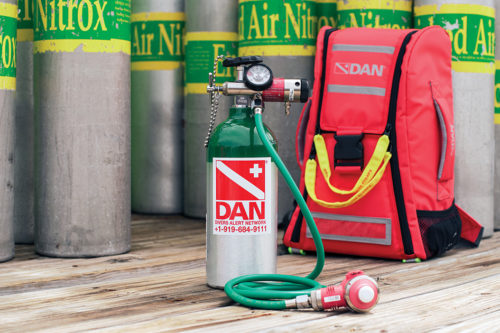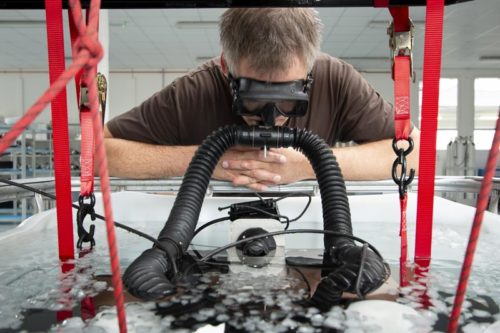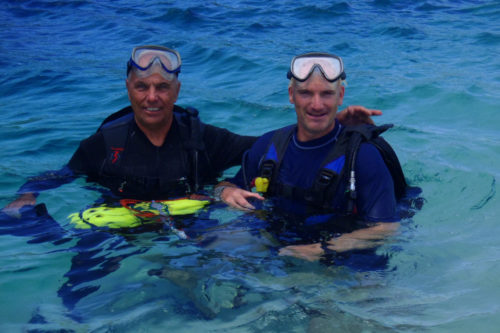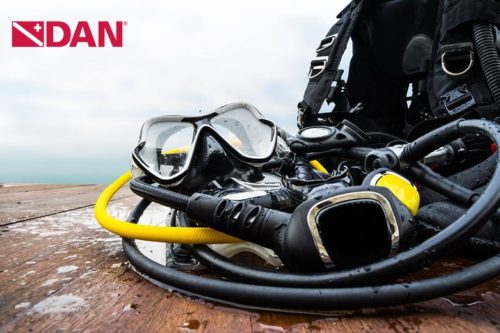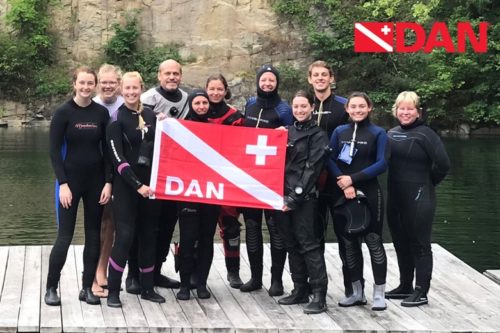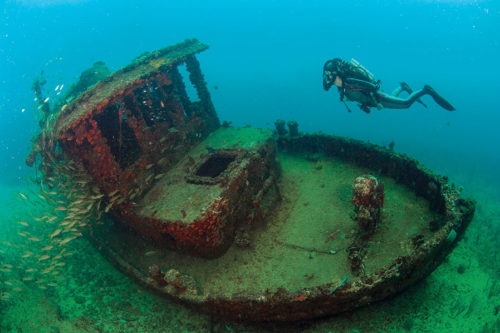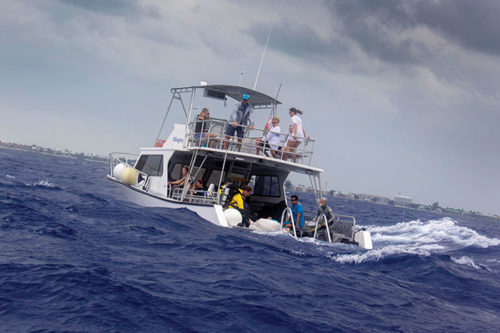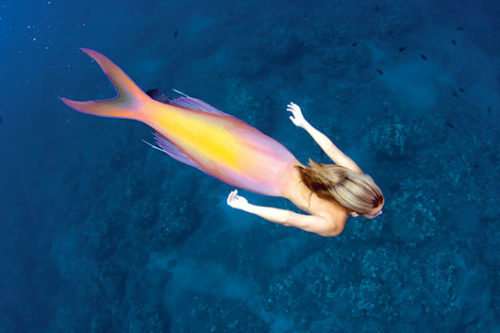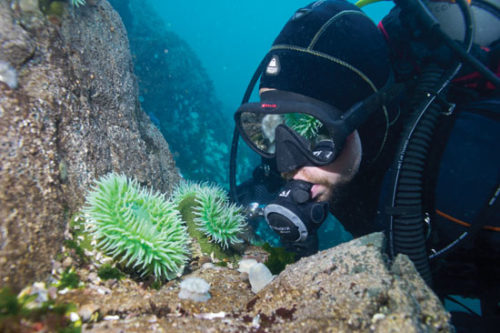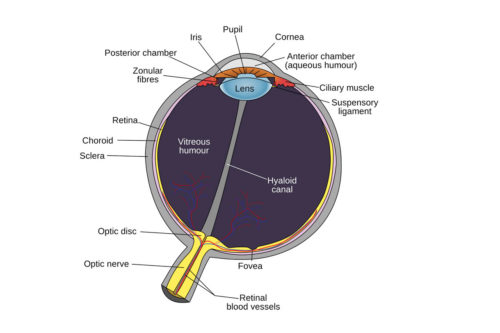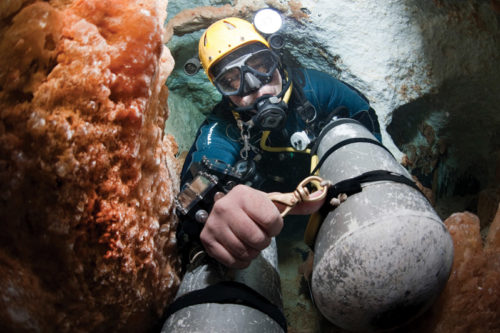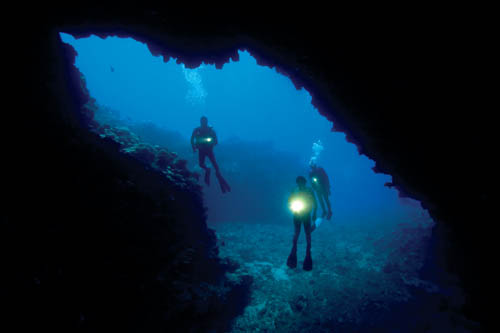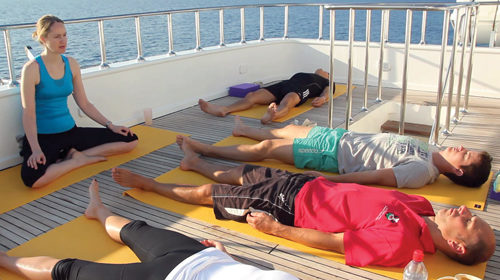Category: Diving Medicine
Lionfish Stings
- DIVER Editorial
- 13th February 2023
By Divers Alert Network With their fanlike fins and melancholy stares, lionfish are now a fixture at many popular dive sites in the Caribbean and Atlantic. Though native to the Indo-Pacific, their populations exploded throughout the Atlantic due to a lack of predators. In addition to wreaking havoc on …
Read MoreTrident trains veteran divers
- DIVER Editorial
- 10th November 2022
Many of our fellow dive buddies around the world are or were part of their country’s military. So, today, in honor of Veteran’s Day (U.S.) and Remembrance Day (Canada), DIVER would like to graciously thank all the military men and women around the world for their honor, commitment, and …
Read MoreDAN Founder Peter Bennett Has Passed Away
- DIVER Editorial
- 16th August 2022
August 11, 2022 – Peter Bennett, PhD, DSc, passed away on Tuesday in the company of his wife, Margaret, and son, Chris. Bennett was a passionate researcher and entrepreneur who founded Divers Alert Network in 1980 and led the organization for 23 years. Born in Portsmouth, England, on June …
Read MoreShake Up Your Environment
- DIVER Editorial
- 21st July 2022
By Divers Alert Network Dive sites are never constant. From currents to water temperature to depth, environmental variables can offer unique challenges and adventures. But before you embark on a new dive experience, make sure you have the skills you need and are well prepared for the conditions. Currents …
Read MoreDAN launches Spanish and Portuguese hotlines
- DIVER Editorial
- 15th July 2022
The DAN Emergency Hotline has been a lifeline for divers around the world since it was launched in 1981. For 41 years, all divers have had access to expert medical assistance 24 hours a day, every day, at +1-919-684-9111. Earlier this year DAN launched a dedicated Spanish-language emergency hotline. …
Read MoreFostering Safety Culture
- DIVER Editorial
- 8th June 2022
By Divers Alert Network While bubble-related injuries get a lot of attention, they represent only a fraction of the trouble divers can face. Similarly, important safety concerns include slips and falls as well as injuries resulting from poor technique or insufficiently maintained equipment. The impact of any given safety …
Read MoreDivers and jelly stings
- DIVER Editorial
- 9th May 2022
By Divers Alert Network Jellyfish are often associated with tropical climates—their gelatinous bodies are commonly seen drifting through warm waters—and they’re known for stinging unsuspecting divers, swimmers, and beachcombers. Cold water divers might be forgiven, then, for thinking that jellyfish stings are a problem they don’t really have to …
Read MoreA Crisis in Emergency Chamber Availability
- DIVER Editorial
- 25th April 2022
When a hyperbaric emergency happens, divers want to know that a chamber is always available nearby. Problem is, it isn’t. Words by Dan Orr In the Winter 2012 edition of Alert Diver Online, Divers Alert Network (DAN) published an article authored by Dick Clarke of National Baromedical Services entitled, …
Read MoreDAN medical services launch new video
- DIVER Editorial
- 13th April 2022
For more than 40 years, DAN has been here to help divers, dive professionals, and health care providers stay safer and better prepared. With its vision of making every dive accident- and injury-free, DAN Medical Services offers an array of essential services trusted by millions of divers worldwide. DAN’s …
Read MoreDownload the free DAN travellers guide
- DIVER Editorial
- 6th April 2022
Divers Alert Network has published the latest edition of its Travelers Medical Guide. Created to help divers, boaters, and adventure travelers recognize and manage various travel-related illnesses and injuries, this digital guide explains common symptoms, illnesses, and treatments in an easy-to-understand manner. “DAN members are active explorers, and they …
Read MoreDAN Announces Livestreaming, In-Booth Safety Consultations at DEMA Show 2021
- DIVER Editorial
- 9th November 2021
Even if you won’t be at DEMA next week, you’ll still be able to watch many of DAN’s DEMA seminars. The safety organization will be streaming live from Las Vegas on Tuesday, Wednesday, and Thursday, November 16, 17, and 18. Tune in for talks about advances in postdive bubble …
Read MoreTurn your interest in diving safety and physiology into a career…
- DIVER Editorial
- 1st November 2021
Are you located in British Columbia? Are looking for a new career? The Simon Fraser University Environmental Medicine and Physiology Unit are looking for someone with a keen interest in diving physiology, aerospace physiology, and equipment testing. They will offer training for the right candidate, including training as a …
Read MoreDecompression Illness and Denial – Part 2
- DIVER Editorial
- 29th September 2021
Demystifying Dive Computers Words and Photography by Jill Heinerth In my previous article I looked into incident reports that fell outside of the data gathered by organizations such as DAN. In this article, I’m going to dive into the physiology of decompression, gradient factors, and conservatism strategies. When you …
Read MoreDecompression Illness and Denial – Part 1
- DIVER Editorial
- 17th August 2021
By Jill Heinerth The cream of the crop of the diving industry are respected for their work in exploration, science, education, and engineering. They have been bent, and so have I. Each year, members of Divers Alert Network (DAN) receive a link to review the Annual Diving Report that chronicles …
Read MoreUnderstanding PFO
- DIVER Editorial
- 29th July 2021
By Divers Alert Network With its unusual name, its connection to cardiovascular health, and its link to DCS risk, it’s easy to see why patent foramen ovale (PFO) is of particular interest to divers. The good news is that, while the condition is common, it’s typically low-risk—but it can …
Read MoreMental Health and Diving
- DIVER Editorial
- 28th June 2021
Words by Lorie Laroche and Dr. Neal W Pollock Health is a state of overall physical, mental, and social wellness. Good mental health involves the ability to live to one’s full potential, to face normal life stressors, to work productively, and to be able to contribute to the community. …
Read MoreTiny Bubbles, Big Trouble
- DIVER Editorial
- 18th June 2021
By Divers Alert Network Decompression sickness (DCS) is a tricky condition. On one hand, we know a lot about who gets it and when—and even how to prevent it, but we do not have a definitive understanding of the mechanisms of bubble formation or injury. Decades worth of research …
Read MoreRichard Moon, M.D., Named 2021 DAN/Rolex Diver of the Year
- DIVER Editorial
- 8th June 2021
Divers Alert Network and Rolex are pleased to announce that Richard Moon, M.D., has been selected as the 2021 DAN/Rolex Diver of the Year. The award was presented at a virtual event on June 5. Dr. Moon is a professor of anesthesiology at Duke University and the medical director of …
Read MoreDAN’s free online seminars at this years DEMA Show
- DIVER Editorial
- 11th November 2020
For 40 years, DAN has played a critical role in the dive industry, championing diver safety, research and emergency preparedness. At this year’s DEMA show, DAN will be reaching out to dive pros around the world with important messages about keeping divers safe in a series of timely webinars …
Read MoreMental Health and Diving
- DIVER Editorial
- 10th July 2020
Words by Lorie Laroche and Dr. Neal W Pollock Health is a state of overall physical, mental, and social wellness. Good mental health involves the ability to live to one’s full potential, to face normal life stressors, to work productively, and to be able to contribute to the community. …
Read MoreBubbles on the Brain
- DIVER Editorial
- 28th April 2020
By Divers Alert Network Cases of decompression sickness (DCS) with neurological symptoms are thankfully rare, but when they do occur they must be responded to rapidly and effectively. Do not let worrying about the “worst-case scenario” make your diving less enjoyable, but do take measures to learn how to …
Read MoreFormer DAN Vice President Richard D. Vann passes away
- DIVER Editorial
- 24th April 2020
It is with great sadness that Divers Alert Network announces the passing of its former vice president of research, Richard D. Vann, Ph.D. Dr. Vann was an esteemed researcher whose work focused on the physiology of breathing and exercise in special environments and the epidemiology of pressure-change-related injuries. His …
Read MoreCPR and COVID-19
- DIVER Editorial
- 10th April 2020
As most of us are aware, COVID-19 can be contracted by coming into contact with droplets of bodily fluid from an infected person. Performing chest compressions as part of CPR can mobilize droplets, much like coughing can. Since even asymptomatic people can carry and spread the virus, it is …
Read MoreDAN Oxygen Units and Treating COVID-19
- DIVER Editorial
- 3rd April 2020
Some divers have asked DAN about using their personal oxygen units to treat people with COVID-19. Divers’ eagerness to help during this crisis is truly admirable. However, DAN does not support the use of these emergency oxygen units for indications other than scuba diving injuries and cases of nonfatal …
Read MoreDiving Manufacturer Helps Create Medical Ventilators
- DIVER Editorial
- 30th March 2020
As the coronavirus (COVID-19) pandemic continues to sweep the globe, people from all corners of the world are coming together to help create solutions in response to the crisis. For one, a team of programmers, scientists, and technicians in the Czech Republic has been putting their skills to use …
Read MoreDiving therapy for PTSD sufferers
- DIVER Editorial
- 30th March 2020
My name is Kevin James, the diver not the comedian, I’m a British Army Veteran having served as a Military Policeman and then a Physical Training Instructor specializing in scuba diving. Leaving the service as a Warrant Officer. I am based on Long Island in the Bahamas. I use …
Read MoreDAN Encourages Divers and Dive Operators to Disinfect Gear Properly
- DIVER Editorial
- 13th March 2020
Update – April 24, 2020 – The CDC has updated its recommendations, and some of the cleaning products noted in this article may not be suitable for killing the virus that causes COVID-19. While Steramine is an effective sanitizing product, and some manufacturers recommended it for use on dive gear, …
Read MoreDAN Seeks Research Interns for Summer 2020
- DIVER Editorial
- 15th January 2020
Divers Alert Network is seeking talented undergraduate and graduate students to assist with its dive safety and medical research this summer. Founded in 1999, the DAN Research Internship is a highly competitive program that gives candidates a strong foundation on which to build their careers. Interns will spend three …
Read MoreHow Rebreathers Work
- DIVER Editorial
- 24th November 2018
By Dr. David Sawatzky Rebreathers are becoming ever more common in the diving community, and in diving fatality records. I wanted to write a column on rebreather fatalities but immediately realized that it would make no sense to most divers unless they had a good, basic understanding of …
Read MoreDealing with seasickness
- DIVER Editorial
- 6th November 2018
There’s nothing worse than gearing up a boat dive only to have your tummy lurching within minutes of leaving the dock. Fly & Sea Dive Adventures are there with you… Choose the right destination Don’t choose a destination where you have to hit the open ocean in the middle of monsoon season …
Read MoreCorrective Dive Masks
- DIVER Editorial
- 1st November 2015
By Dr. David Sawatzky In the last three columns I reviewed vision underwater, common refractive errors, and reading glasses/ contacts. In this column I will finish the discussion of vision and diving by looking at various mask options for correcting your vision while under water. Do You Need to Correct Your Vision? Diving with a …
Read MorePresbyopia and Contact Lenses
- DIVER Editorial
- 21st January 2015
By Dr. David Sawatzky In the last column I reviewed common refractive errors and the effects they have on our vision both in and out of the water. In this column I will continue that discussion by reviewing reading glasses, contact lenses and how they interact with diving. Presbyopia (far-sightedness associated with age) …
Read MoreSeeing Underwater
- DIVER Editorial
- 13th October 2014
Visibility notwithstanding, dive masks are the solution… for human beings By Dr. David Sawatzky The eye is really just a complex, living camera. The main parts of the eye are the cornea, iris, lens and retina. The cornea is clear and has no blood supply. It protects the eye …
Read MoreThe Mind Games of Diving Part 2
- DIVER Editorial
- 9th September 2014
By Dr. David Sawatzky Cave diving is a very unforgiving activity. You have to keep track of a large number of variables, concurrently. If you make a mistake or lose track of one of these variables, you will very likely die. There is very little margin for error. In …
Read MoreThe Mind Games of Diving
- DIVER Editorial
- 4th August 2014
By Dr. David Sawatzky Diving is an activity with some degree of real risk. You can get hurt while diving and you can die. You should have some degree of anxiety and apprehension when you are diving. This ‘appropriate’ level of arousal is reasonable, normal, healthy and actually reduces …
Read MoreYoga and Freediving
- DIVER Editorial
- 29th July 2014
To accompany our rather good feature on breath hold diving and yoga, here are a few extra tidbits: Yoga literally means ‘union’ and is based on the principle of harmony between the mind and body. All freedivers can benefit from it but yoga is particularly helpful for those …
Read More- 1
- 2

